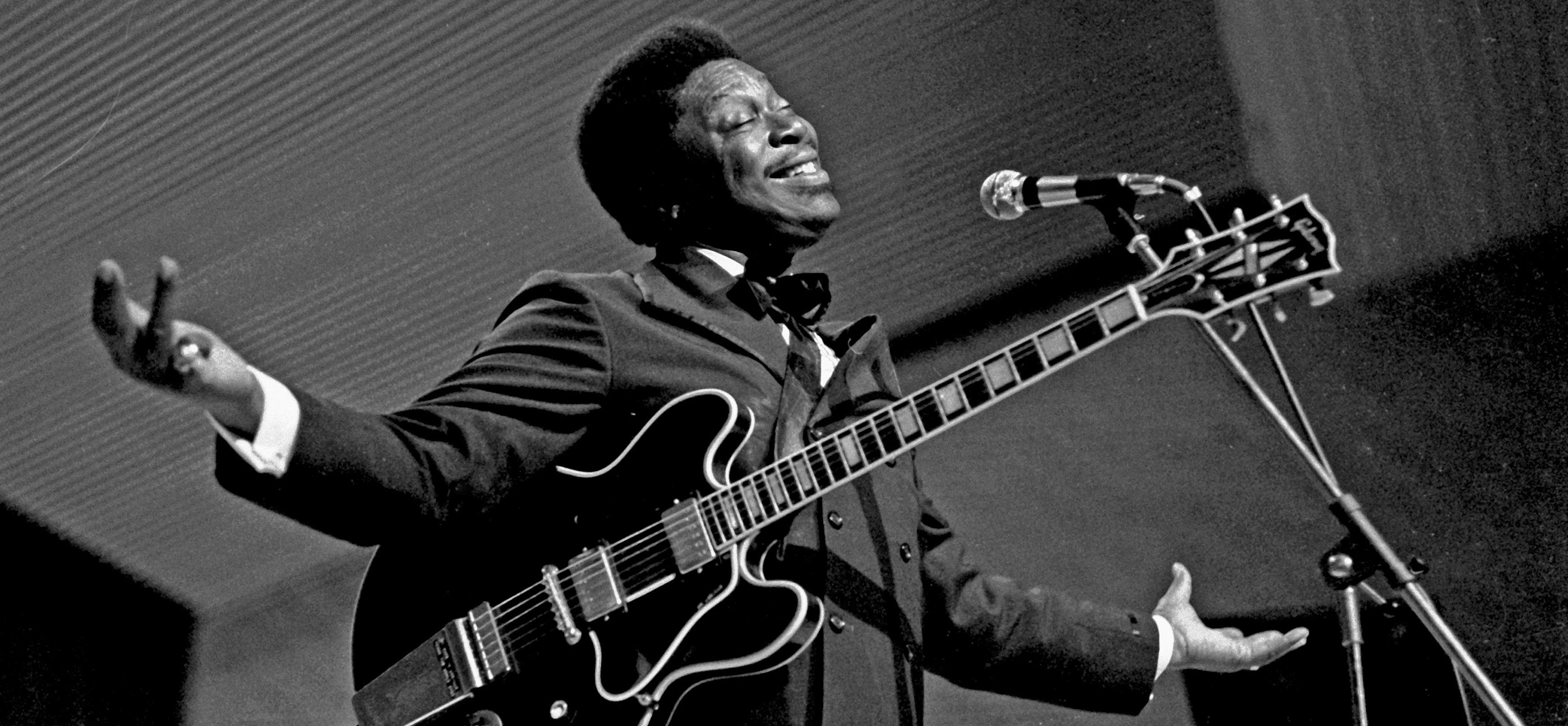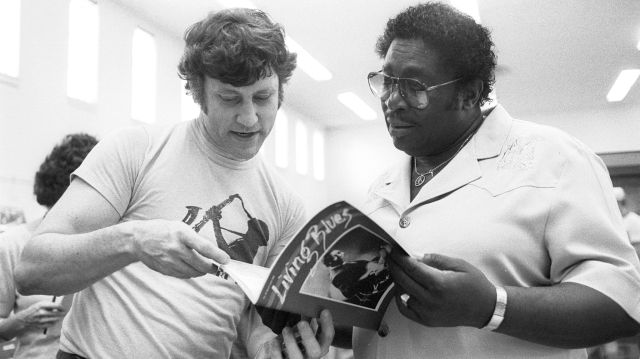Authors:
Historic Era: Era 10: Contemporary United States (1968 to the present)
Historic Theme:
Subject:
Spring 2021 | Volume 66, Issue 3


Authors:
Historic Era: Era 10: Contemporary United States (1968 to the present)
Historic Theme:
Subject:
Spring 2021 | Volume 66, Issue 3
Editor's Note: William Ferris is the former Chairman of the National Endowment for the Humanities and founding director of the Center for the Study of Southern Culture.

B. B. King’s performances and recordings defined the blues for more than six decades. King reached out to members of each new generation with music they understood and embraced, and even into his eighties he followed a rigorous schedule of performances throughout the United States and overseas that would exhaust a much younger artist.
I once asked King about how the blues began, and he told me their origin was a mystery, like the creation of life on the bottom of the ocean. He continued, “The earliest sound of the blues that I can remember was in the fields, where people would be picking or chopping cotton. Usually one guy would be plowing by himself or take his hoe and chop way out in front of everybody else. You would hear this guy sing…just what he felt at the time. The song would be maybe something like this: ‘Oh, wake up in the morning, about the break of day.’"
As a musician, B. B. King defied definition. Born Riley B. King on September 16, 1925, on a plantation in the Mississippi Delta near the towns of Itta Bena and Indianola, he was influenced by gospel singers in the black church, as well as by Blues artists like Blind Lemon Jefferson and Lonnie Johnson. In 1946 King hitched a ride to Memphis, where he lived with his cousin Bukka White, a noted Blues artist.

King recalled how, “This was the very first time I had been to Memphis, and Memphis was to me then like New York City would be to the average person. I’d never seen a city as large as Memphis. I was really like a kid in a candy store.”
In Memphis King launched his career as the “Pep-ti-kon Boy,” advertising Pep-ti-kon health tonic on radio station WDIA. He also performed with Bobby Bland, Johnny Ace, and Earl Forest in a group called the Beale Streeters. King adopted the nickname the Beale Street Blues Boy, which he shortened to Blues Boy, and then to “B.B.”
In 1950 King’s “Three O’Clock Blues” topped the rhythm-and-blues charts for four months and launched his career as a professional musician. He organized his own band and